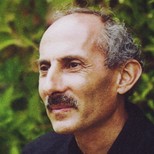 As near as I can remember, when I was a child the only ways I could say No to what someone else wanted me to do were to whine, to cry, to disappear or disassociate, or to lag back, doing the thing slowly and badly. My little brother on the other hand, who had red hair, learned when he was still in diapers to throw himself down on the floor and scream and kick, and then hold his breath. Amazing. There is no middle way between these two poor ways of gaining some ownership of your life.
As near as I can remember, when I was a child the only ways I could say No to what someone else wanted me to do were to whine, to cry, to disappear or disassociate, or to lag back, doing the thing slowly and badly. My little brother on the other hand, who had red hair, learned when he was still in diapers to throw himself down on the floor and scream and kick, and then hold his breath. Amazing. There is no middle way between these two poor ways of gaining some ownership of your life.Until recently I misunderstood the Buddhist idea of the middle way. I believed it meant carefully steering the boat between two extremes, such as passivity or aggression. But there is another way to understand that. The word that is often translated as "middle" actually means "core." The Core Way is the way of our center, the way of the heart. Sometimes you see the word "heart-mind" used to indicate that it is all of us, the entire thinking, feeling creature we are.
When you try to make a big decision about your future, you are like a person in a black tunnel, reaching out, touching a wall, advancing carefully, feeling overhead, listening to drips of water, tapping a foot to see if you're coming up on a chasm. We don't come equipped with flashlights. I'm afraid I wasn't even that careful about big decisions when I was young, though choosing a major or getting married seemed to be life-and-death. You don't know life-and-death until you can see that the light at the end of that tunnel is death, that death is where you are going, and your decisions may affect the timing and manner of your death.
Several years ago I was shocked to learn that my kidney function had fallen so low while I was busy with other things that it was time for me to contemplate dialysis and transplant. My reaction to the idea of having my body invaded by either of these treatments was very emotional. I couldn't stomach the idea of cadaveric transplant, and was afraid of it. I chose to go on peritoneal dialysis, which the doctor recommended, uninformed about what it would mean in my daily life. You know, what you have to go through each day. How it will affect what you eat, when you sleep, whether you can leave the house, the way your clothes fit, how much time it will take (3 hours a day). This ended abruptly when I got an abdominal hernia at my waist band and the doctors let it rupture. I chose not to go back on dialysis after I healed. It turned out a careful person could live with the kidney function I have.
After that I got to seriously rethinking transplant. I had unwittingly accepted the cultural imperative that we must do whatever it takes to stay alive one more day. If that was true, I had only two choices, dialysis or transplant, and I was on a path of complying with major medical treatments. I ran the hurdles and got on a transplant list. In my fear of death, I had reverted to that little girl who goes along with what the grownups tell her to do. This is strange, indeed, because the kidney doctor had told me carefully that I could choose to have no treatment, and that death from kidney failure was not unpleasant. But I didn't know anything about death.
Over this year-and-a-half, many things happened to nudge my attitude and change my mind a little at a time. Those many little experiences that make us who we are. Then, three weeks ago my health "events" caused the transplant surgeon to put me on hold. One problem was that I'd had an episode of arrythmia. My internist didn't believe me, that it was caused by electrolyte imbalance, that I had been flagrantly ignoring the kidney diet (it was the Fourth of July). The cardiologist didn't believe me and told me to wear an "events monitor" for a month, maybe two. The transplant surgeon didn't believe me. I'm much more familiar with the kidney diet than any of them. More importantly, I'm familiar with my body. But they know the statistics.
I kept thinking about the stress test, even as I treated the sores left on my body by the leads to the monitor. A stress test is very unpleasant, several hours of boredom capped by a huge stress caused by chemicals that raise your blood pressure and your heart rate. You are so radioactive that for three days you will trigger an airport detector. That troubles me. The disdain of the medical profession for the elderly, sick patient is shown by the fact that you must show up at 7:30 a.m. for this test. Because. No flexibility, no explanation.
(to be continued)
[image: "Freedom is to Follow the Heart," by Sanna Wallin.]

